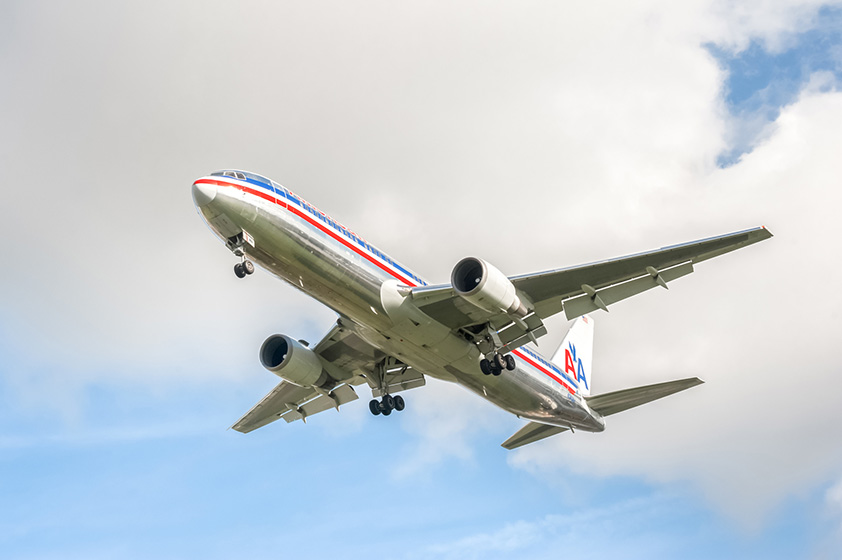What can be done to protect airline workers who are injured on the job?
An unusual incident occurred at the Los Angeles International Airport on February 10, 2023. As an empty plane was being towed to a parking area, it struck a shuttle bus full of passengers who were being transported between terminals.
It was a “low-speed” event, according to the Los Angeles Fire Department, and no one was killed in the collision. However, 5 people were injured, and 4 had to be hospitalized. This included the bus driver and the tow driver.
The crash is just the latest in a string of bizarre incidents happening around major U.S. airports, including a near-collision between 2 planes trying to depart and land, respectively, on the same runway.
This increasing number of airport mishaps has prompted some to ask questions about things like workplace accidents, workers’ compensation and employee rights after an on-the-job injury.
Common work injuries for airline workers
There are a number of ways that flight attendants and other airline workers can be hurt in the course of their work. These include plane- and airport-related accidents as well as illnesses and other medical conditions caused by their job.
The U.S. Bureau of Labor Statistics (BLS) reported that there were almost 5,000 cases of flight attendant injuries and illnesses in 2019. Their overall rate of injury is 517 per 10,000 workers, which is substantially higher than the rate of 87 across other private industries.
According to BLS data, overexertion is the most common injury among flight attendants, occurring at a rate of 185.8 per every 10,000 workers (or almost 36% of all nonfatal workplace injuries and illnesses among flight attendants in 2019).
Flight attendants often work busy schedules that cross multiple time zones. Among other duties, they’re responsible for pushing and pulling carts and lifting luggage, all of which can lead to muscle strains and other overexertion injuries.
Other frequent injuries sustained by flight attendants and those working in aviation include the following:
- Electrical injuries. Flight attendants can be shocked and burned by everything from kitchenette equipment to passengers’ cargo containing dangerous materials. One danger, for example, is lithium batteries catching fire.
- Occupational illnesses. An occupational illness is one that occurs as a direct result of employment. For flight attendants, these can include altitude sickness, respiratory illnesses or conditions of the inner ear.
- Post-traumatic stress disorder. Post-traumatic stress disorder (PTSD) can occur after a traumatic event, such as a plane crash of a violent passenger. Symptoms can be both physical and psychological, often making it difficult to focus on and perform work duties.
- Repetitive stress injuries. Flight attendants often bend, lift, push, carry, and distribute things, which can trigger repetitive stress injuries in wrists, knees, and more.
- Slip, trip and fall injuries. Moving around tight spaces while others are seated, flight attendants are at an increased risk for falls, especially if there’s turbulence during the flight.
- Brain injuries. Flight attendants can suffer concussions and other brain injuries after falling, being struck by falling objects, or living through crashes and episodes of severe turbulence.
- Carbon monoxide poisoning. Carbon monoxide poisoning can be a danger in enclosed spaces such as airplanes. Flight attendants have even sued because of their exposure to carbon monoxide in the past.
Permanent physical impairment rating in Alabama workers’ comp cases
Permanent physical impairment (PPI) is when the treating physician assigns a degree of permanent impairment based on the injuries from the work-related injury. PPI is one of the factors used to determine the value in a workers’ compensation case.
Workers’ compensation for airline workers
Most airline employees who are injured in the line of duty will qualify for workers’ compensation benefits. This is a type of insurance meant to provide financial relief for employees who get hurt on the job.
Workers’ comp is no-fault insurance, meaning that no one has to be deemed liable for your injury or illness. You don’t have to prove that your employer was negligent or generally “at fault” to qualify for compensation.
However, your injury or illness does need to be sustained within the course and scope of your employment. This means that it needs to be the result of your work environment or occur while you’re in the process of performing your work duties.
There are several types of benefits available for workers’ comp, including:
- Medical expenses. This includes coverage of all necessary medical expenses, including hospital bills, medications, surgeries, rehabilitation, and medical supplies and equipment)
- Lost wages. Workers receive a portion of their usual pay (typically two-thirds of their average weekly wage) while they recover from their injury. The length of time you can collect disability payments (which can be either temporary or permanent) depends on your disability.
- Death benefits. These are benefits for certain dependent members of the deceased’s family. They include burial expenses and lost income replacement.
Pain and suffering is not something that falls under the umbrella of workers’ comp. However, if a 3rd party caused your injury (for example, if you were injured by a defective product), you may be able to recover compensation for pain and suffering through a personal injury lawsuit filed against the manufacturer or other responsible 3rd party.
How long do workers have to file a workers’ compensation claim?
The amount of time you have to file a workers’ compensation claim varies by state. In Alabama, injured workers are generally required to notify their employer of their injury in writing within 5 days of the injury unless they can prove they were physically or mentally incapable of doing so. For example, if you were in a coma, you wouldn’t be expected to adhere to this 5-day reporting deadline.
In certain limited cases, workers may have up to 90 days to report their injury or illness to their employer. You should contact an experienced workers’ compensation attorney as soon as possible if you have questions or concerns about this reporting timeline.
After you notify your employer, you will still need to file a workers’ compensation claim to start getting benefits. In Alabama, you have 2 years after your accident to file a claim. Failure to file a claim within this timeframe will prevent you from receiving any workers’ comp benefits. It’s in your best interest to file a claim as soon as possible after any work injury.
Contact an Alabama workers’ compensation attorney
At Nomberg Law Firm, we believe all workers are entitled to a safe and healthy work environment. If you’ve suffered an on-the-job illness or injury in Alabama, contact our experienced workers’ compensation attorneys to help with your claim.
Our firm handles both workers’ compensation and personal injury cases, so we can help you explore every avenue possible to ensure you recover maximum compensation. We have extensive experience fighting for injured Alabama workers to get them the money they deserve.
Contact us today for a free, no-obligation consultation.


